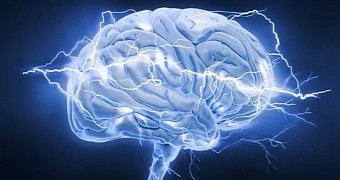Having carried out a series of experiments with the help of volunteers, a team of researchers at Monash University in Australia found evidence that the anatomy of a person's brain dictates whether they are inclined to be more rational or emotional.
In not so many words, it appears that rational and emotional guys and gals don't differ just in terms of behavior but also when it comes to how neurons are arranged inside their brain.
The team, led by specialist Robert Eres of the School of Psychological Sciences at Monash University, details their work in a paper published earlier this week in the journal NeuroImage.
Emotional and rational people have different brains
The focus of this investigation carried out by researcher Robert Eres and his colleagues was on how people react to the feelings of others. Thus, some people are known to be affected too while others tend to take things more matter-of-factly.
“People who are high on affective empathy are often those who get quite fearful when watching a scary movie, or start crying during a sad scene,” specialist Robert Eres said in a statement.
“Those who have high cognitive empathy are those who are more rational, for example a clinical psychologist counseling a client,” the researcher went on to explain.
As part of their work, the team mapped the distribution of grey matter in the brains of a total of 176 individuals. They found that those who had affective empathy had a greater density of neurons in a brain region known as the insula.
Those who showed a clear tendency to display cognitive empathy rather than affective empathy, however, were shown to have a greater neuron density in another brain region, i.e. the midcingulate cortex.
In light of their findings, the researchers propose that brain anatomy - the distribution of grey matter in the brain, to be more precise - influences behavior in that it makes people tend to act emotional or rational in specific circumstances.
More questions raised than answered
Specialist Robert Eres and his colleagues plan to further study this link between brain anatomy and emphatic behavior and hope to determine whether it might be possible to train people into being less emotional and less rational, or the other way around.
The scientists are also interested to learn whether brain injuries such as strokes affecting either the insula or the midcingulate cortex can make people switch from displaying affective empathy to displaying cognitive empathy.

 14 DAY TRIAL //
14 DAY TRIAL //